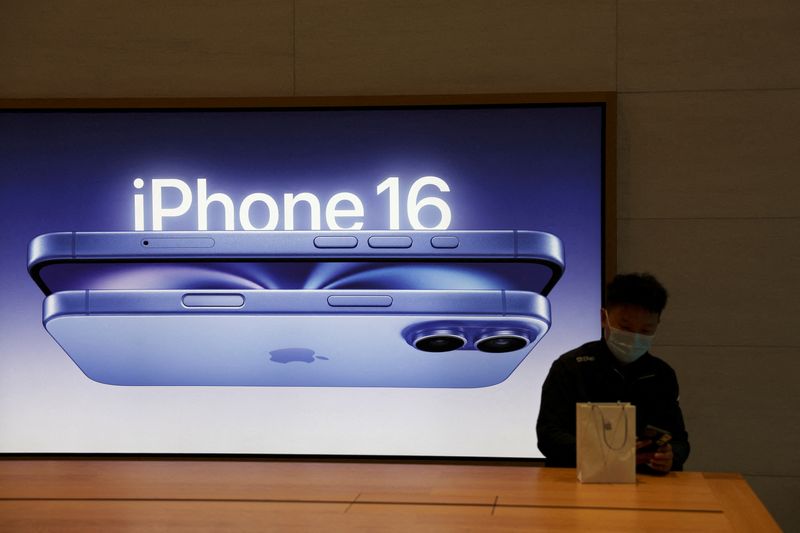BEIJING (Reuters) - Apple (NASDAQ:AAPL) sold fewer smartphones during China's Singles' Day shopping festival this year as it faced pressure from an "abnormally high" number of rival handsets launched around the event, Counterpoint Research said on Wednesday.
The iPhone manufacturer saw its sales decline year-on-year by "double digit percentages" from Oct. 18 to Nov. 10, the research consultancy said. In comparison, its main rival in China, Huawei, recorded 7% sales growth, fueled by price cuts on its Pura 70 and Mate 60 models.
Xiaomi (OTC:XIACF) also saw sales decline, with volumes falling 6%.
"To capitalize on one of the biggest sales festivals of the year, major Chinese OEMs (manufacturers) except Huawei launched their latest flagships ahead of the festival," Counterpoint said, describing this as a key reason for Apple's decline. Only Xiaomi did so last year, it noted.
Huawei declined to comment. Apple and Xiaomi did not immediately respond to requests for comment.
Overall, smartphone sales in China during the event, the country's biggest online shopping festival, fell 9% year-on-year as a slowing economy weighed on consumer enthusiasm despite the promotions, Counterpoint said.
Apple's Singles' Day performance underscores the growing competition it faces in the world's largest smartphone market, especially from Huawei which has come back strongly in the premium segment.

The U.S. tech giant has since responded with multiple discount campaigns to boost sales. Apple's iPhone 16 Pro and the iPhone 16 Pro Max were the festival's best selling models, Counterpoint said.
China's e-commerce platforms such as Alibaba (NYSE:BABA) and JD (NASDAQ:JD).com did not release sales figures for the festival, having dropped the practice in 2022, but Alibaba said Apple and Xiaomi were among brands that surpassed 1 billion yuan in gross merchandising value.